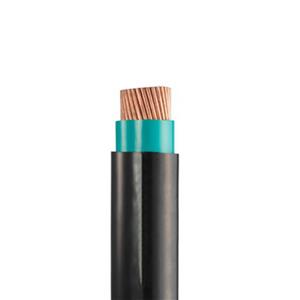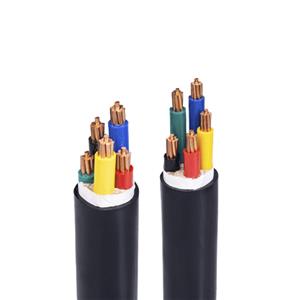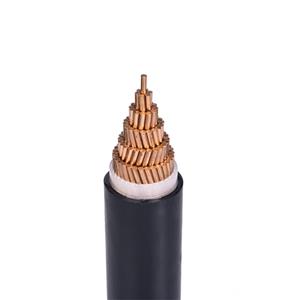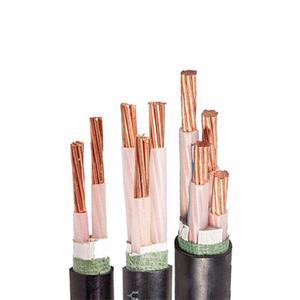Should I choose hard wire or soft wire for home decoration?
During the renovation process, choosing the right wire is essential to ensure electrical safety and good electrical performance. A common question is: Should I choose hard wire or soft wire for home decoration?
First of all, it is necessary to clarify the definition and difference between hard wire and soft wire. Hard wire, also known as BV wire, is a single-strand copper wire, which is relatively hard, so it is easier to pass through the pipe than soft wire. Soft wire, also known as BVR wire, is a multi-strand copper wire with a soft feel, but the price is slightly higher than hard wire.
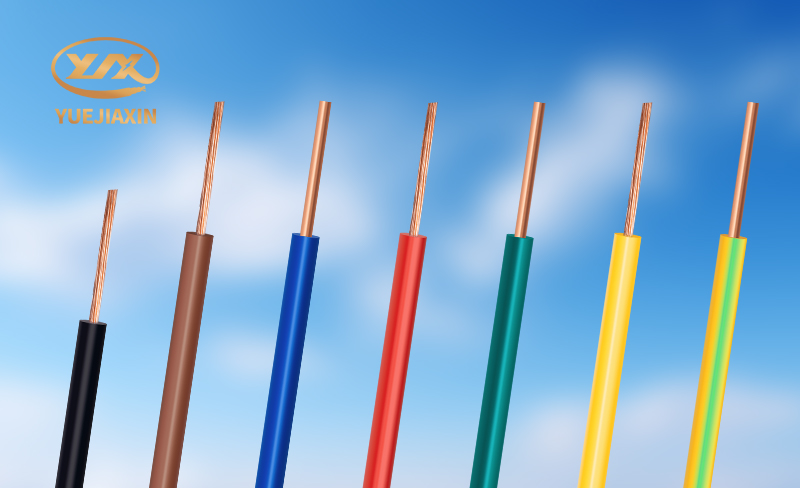
Next are the advantages and disadvantages of BV and BVR. The advantages of BV are that, first of all, the price of BV is usually cheaper than BVR due to the relatively simple manufacturing process. Then BV is relatively durable and not easy to damage, so it has a longer service life. Finally, it is easy to maintain. BV is easier to handle when repairing and replacing because its structure is relatively simple. The disadvantages of BV are that compared with BVR, BV may have a smaller current carrying capacity, so it may not be suitable for situations where a larger current is required. The flexibility is also relatively poor. The structure of BV is relatively simple, so it may not be suitable for some applications that require flexibility. The advantages of BVR are that, first of all, the current carrying capacity is large. The multi-strand structure of BVR makes its current carrying capacity relatively large, so it is more suitable for situations where a larger current is required. Good flexibility, the structure of BVR makes it more suitable for applications that require flexibility. BVR is easy to travel in the pipeline, reducing the difficulty of construction and making construction easier. BVR is easy to operate, which helps to shorten the construction time. The disadvantage of BVR is that due to the complex manufacturing process, the price of BVR is usually higher than BV. Short service life: Compared with BV, BVR may have a shorter service life and is easy to damage. Inconvenient maintenance: The structure of BVR is relatively complex, so it may be inconvenient to repair and replace.
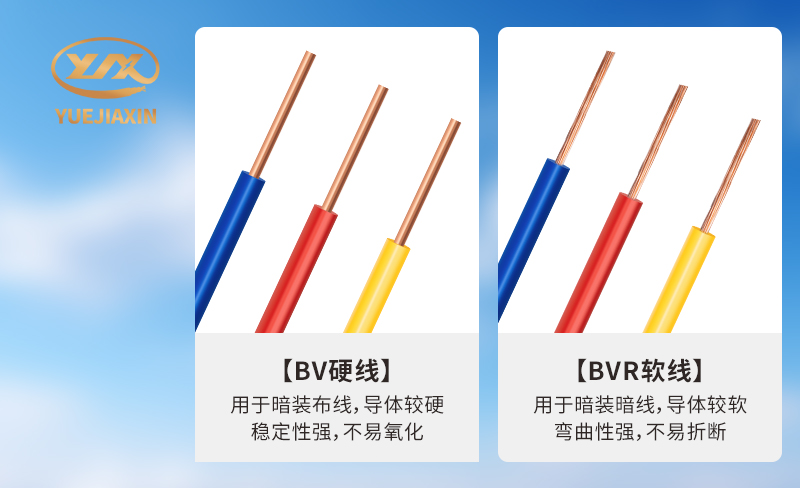
When we choose and buy wires, we must first consider the purpose of the wires and the expected current load. If the current demand is large, it is recommended to choose soft wires because they have a larger current carrying capacity. If the current demand is small, hard wires are also an economical and practical choice. Then consider the installation environment of the wires. If the wires need to pass through walls or be laid over long distances, it is recommended to choose hard wires because they are stable and easy to install. If the wires need to be laid in many elbows or in a small space, soft wires may be more suitable. When choosing wires, pay attention to choosing brands and models of wires with reliable quality. Poor quality wires may cause electrical failures or safety hazards. Consider cost and performance comprehensively. When choosing wires, consider cost and performance comprehensively. Hard wires are usually more economical, while soft wires have better performance. Make the best choice based on actual needs and budget.
- PVC-Insulated Cable
- 450/750V BV Single- Core Cu/PVC Cable
- 450/750V BVR Single- Core Cu/PVC Cable
- 300/500V Or 450/750V RV Single-Core Cu/PVC Flexible Cable
- 300/500V Or 450/750V RVV Multi-Core Cu/PVC/PVC Flexible Black Cable
- 300/500V Or 450/750V RVV Multi-Core Cu/PVC/PVC Flexible White Cable
- 300/500V Or 450/750V RVVP Multi-Core Cu/PVC/CWS/PVC Screened Flexible Cable
- 450/750V KVV Multi-Core Cu/PVC/PVC Control Cable
- 450/750V KVV22 Multi-Core Cu/PVC/STA/PVC Armoured Control Cable
- 450/750V KVVP Multi-Core Cu/PVC/CWS/PVC Screened Control Cable
- 450/750V KVVP2-22 Multi-Core Cu/PVC/CTS/STA/PVC Screened Armoured Control Cable
- 0.6/1KV PVC-Insulated PVC-sheathed Single-Core Power Cable
- 0.6/1KV PVC-Insulated PVC-sheathed Multi-Core Power Cable

